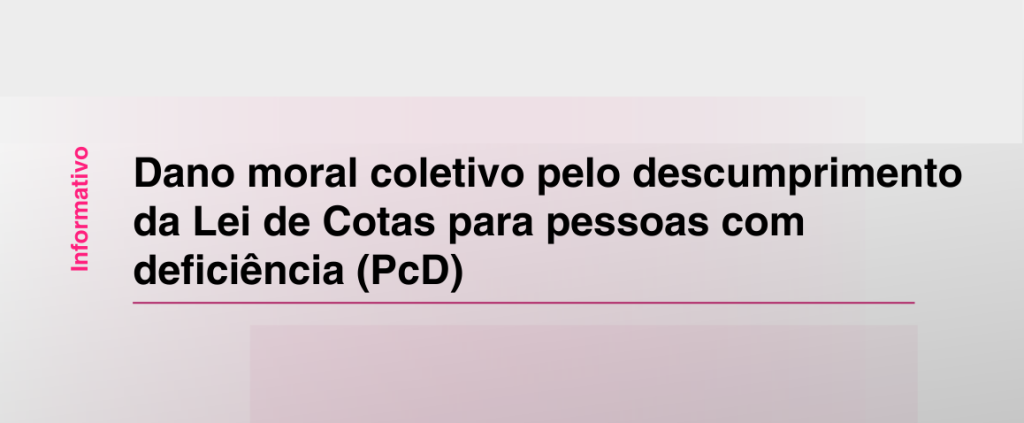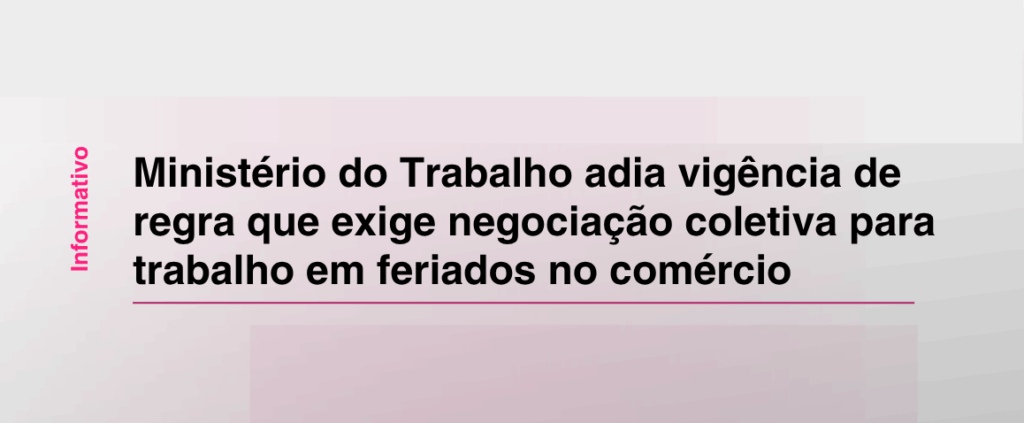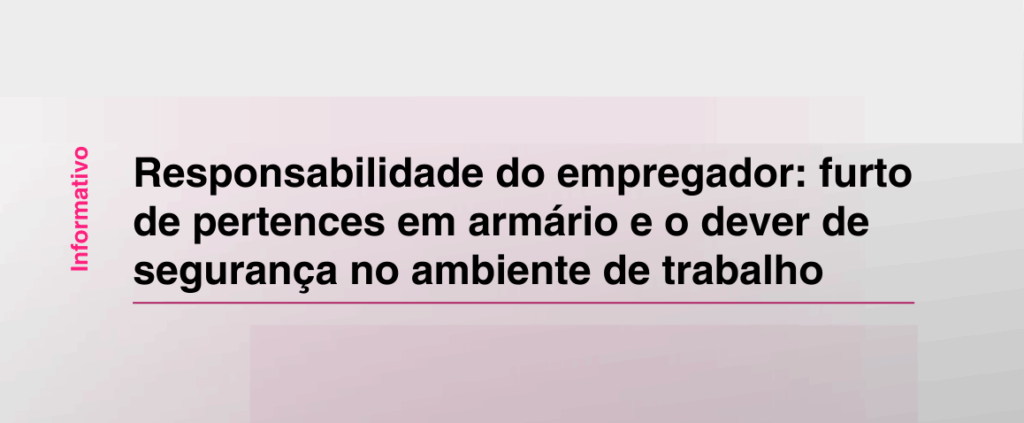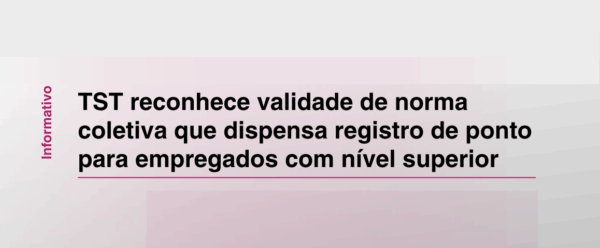Indirect termination recognized in court: companies must also pay the fine under Article 477 of the CLT (Brazilian Labor Code).

O impacto dessa decisão é expressivo para empresas, pois, muitas vezes, a rescisão indireta é discutida em processos longos, e há a percepção equivocada de que o prazo para pagamento só correria após a decisão final.
Collective moral damages for non-compliance with the Quota Law for people with disabilities (PwD)

Changes in the Superior Labor Court: legal analysis and consequences
Failure to comply with this legislation may result in convictions for collective moral damages, according to the Superior Labor Court (TST), when the violation affects a group of workers, not just one individual. The employer is liable for these damages, which are compensated with compensation that varies according to the severity of the violation, the number of people affected, and the company's economic capacity.
The Superior Labor Court (TST) has taken a firm stance on compensation for collective moral damages, seeking to hold accountable employers who adopt discriminatory or negligent practices that undermine the human dignity of workers. Compensation, in this context, has an educational purpose, aiming not only to compensate those affected but also to prevent the repetition of harmful conduct.
Update regarding the appeal deposit limits provided for in article 899 of the CLT will be valid from August 1, 2025

SEGJUD.GP Act No. 391, of July 10, 2025, released the new values referring to the appeal deposit limits, which will be applied from August 1, 2025.
Ministry of Labor postpones the validity of the rule requiring collective bargaining for work on holidays in commerce

The Ministry of Labor extended the requirement for prior collective bargaining for retail companies to operate on national holidays until March 1, 2026. The change, which particularly impacts the retail and wholesale sectors, gives companies more time to adapt to the new legal requirements.
Employer's liability: theft of belongings from a locker and the duty of safety in the workplace

A recent court ruling convicts a company of stealing personal items from an employee's locker. This case illustrates the courts' growing attention to employers' duty to provide security and guarantee the privacy of their employees (NR-24).
The award of material and moral damages was based on the failure to ensure the security of belongings and the violation of rights. Companies that provide lockers but lack adequate locking devices, or that engage in practices of breaking padlocks without replacing them, are exposed to considerable legal risks and potential investigations by the Public Prosecutor's Office (MPT).
Evaluate your company's procedures and protect yourself from future litigation.
Want to understand the implications and how to legally protect your organization? Read our full article.
Employee credit: guidance for employers on payroll deductions

MP 1,292/2025 established the Workers' Credit program, a new line of payroll loans aimed at CLT employees, domestic workers, rural workers and directors not employed with FGTS, contracted entirely digitally through the Digital Work Card application.
The installments cannot exceed 35% of the net remuneration and the worker can use up to 10% of the FGTS balance and 100% of the termination fine as collateral, while the employer must make the discounts via eSocial and collect the amounts via FGTS Digital, under penalty of civil, administrative and criminal liability.
Since March, more than 1.8 million workers have joined the program, moving around R$10 billion in credit.
NR-1 update: psychosocial factors in GRO enter the educational phase from May 2025

Starting May 26, 2025, the inclusion of psychosocial risk factors in Occupational Risk Management (ORM) will become mandatory. Initially, inspections will be for guidance only, without the imposition of fines, allowing companies to adapt to the new requirements. However, starting May 2026, failure to comply with the rules may result in citations and penalties. Mazzucco & Mello is prepared to guide its clients in the correct implementation of the new rules.
TST recognizes the validity of a collective agreement that waives timekeeping for employees with higher education

The TST recognized as valid a collective agreement clause that exempts employees with degrees from recording their time, based on the understanding of the STF (Theme 1046), which allows the flexibility of labor rights through collective bargaining — as long as it does not involve absolutely unavailable rights.
Of the 21 binding theses of the TST – from the magazine to employees in the workplace
At the beginning of this year, the Plenary of the Superior Labor Court established 21 binding theses and admitted 14 new incidents of repetitive appeals. There was also a provision for improving the wording of the theses before sending them to the ministers for final approval.
Binding understandings affirm and consolidate understandings of the Superior Court, in order to bring legal certainty to the country. All 21 binding theses published are understandings issued by the TST collegiate body, without any divergence between them.
One of the theses standardized by the TST that generated a binding understanding was addressed in RRAg 20444-44.2022.5.04.0811, concluding that the search of employees in the company does not generate moral damage, as long as it is impersonal and does not expose the employee to a humiliating situation.
Of the 21 binding theses of the TST – the act of dishonesty and the validity of just cause

The Plenary of the Superior Labor Court established this Monday (24/02/2025) 21 binding theses and admitted 14 new incidents of repetitive appeals. The improvement in the wording of the theses is scheduled for the week following Carnival, before they are sent to the ministers for final approval.
Binding understandings affirm and consolidate understandings of the Superior Court, in order to bring legal certainty to the country. All 21 binding theses published are understandings issued by the TST collegiate body, without any divergence between them.
One of the theses standardized by the TST that generated a binding understanding was dealt with in RRAg 00006761-75.2023.5.04.0611, considering that the mere imputation of an act of dishonesty to the employee is not sufficient to validate dismissal for just cause.